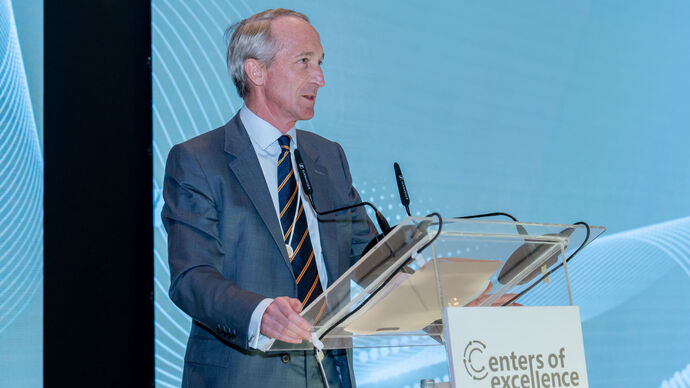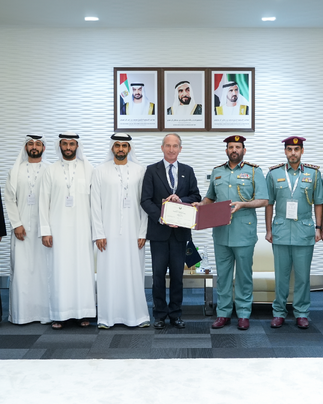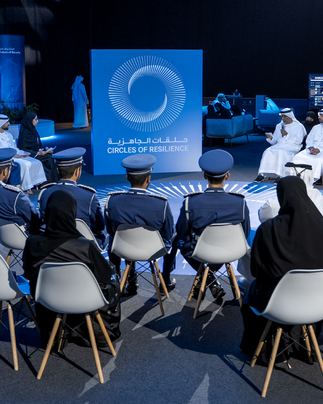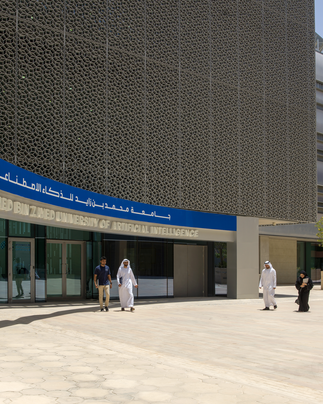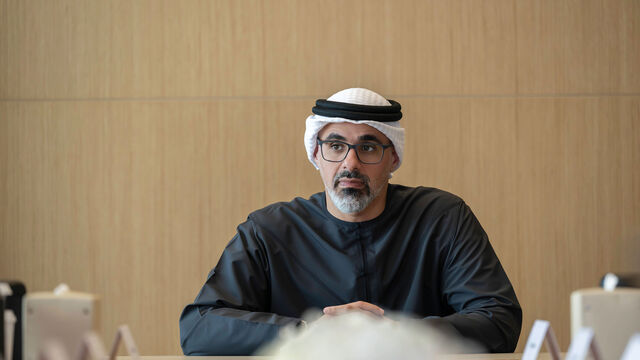Rabdan Academy has hosted the Interoperability in Fire Management Conference with the participation of experts, practitioners, specialists and researchers from various relevant institutions. The conference aimed to enhance the unified national response to major fire incidents.
The event was sponsored by key national institutions directly involved in firefighting, including the Ministry of Interior, the National Emergency, Crisis and Disaster Management Authority (NCEMA), and the Abu Dhabi Civil Defence Authority (ADCDA). Additionally, numerous professionals from specialised agencies across the country actively took part.
The conference aims to establish the first Centre of Excellence for Joint Training, dedicated to addressing major fires among 12 centres of excellence. This initiative is part of an integrated national project led by Rabdan Academy, covering various topics related to emergencies and crises. Held over two consecutive days, the conference featured a plethora of working papers, dialogue sessions, workshops and simulations of significant firefighting scenarios.
His Excellency Staff Major General Michael Simon Hindmarsh, Commander of the Presidential Guard and Chairman of Rabdan Academy's Board of Trustees, emphasised that the conference aligns with the aspirations of the UAE's wise leadership to unite national institutions towards common goals and excellence in relevant fields. His Excellency commended Rabdan Academy for becoming a global model for joint training centres of excellence in safety, security, defence, emergency preparedness and crisis management.
His Excellency Hindmarsh also emphasised that the inception of Rabdan Academy was guided by three pivotal dimensions. The primary dimension focuses on the academic sphere, encompassing university programmes offerings. The second dimension centres on vocational education and training, realised through various training and professional development initiatives. The third dimension, the focus of the current conference, involves aligning the endeavours of national entities with a shared vision under a unified umbrella to foster the creation of globally renowned centres of excellence.
James Morse, President of Rabdan Academy, expressed gratitude to all participating institutions, anticipating that the conference would contribute to advancing the development of the fire management sector in the UAE. Morse underscored Rabdan Academy's role as an education and training provider, committed to achieving excellence and continual enhancement of national capabilities in fire management.
Dr Denis Onieal, former Deputy Fire Administrator of the US Fire Administration, shared insights in the second keynote speech, drawing on his two-decade experience in the world's most advanced firefighting systems. Dr Onieal highlighted the value and importance of interoperability for emergency and disaster response, shedding light on challenges in interagency responses to no-notice emergencies and recounting his experiences at the World Trade Centre in the weeks following 9/11.
Dr. Muna Abdulla Balfaqeeh, Director of Vocational Education Affairs at Rabdan Academy, said: "Presently, we are translating the UAE's ambitions for development and progress into concrete plans and strategies to address significant fires and emergency responses, especially given the substantial challenges facing the world and an unprecedented acceleration in climate change."
Dr Balfaqeeh further stated that the conference aligns with the pillars of the UAE Centennial 2071, striving to anticipate the future with a long-term vision that embraces the best experiences and practices.
The General Command of Civil Defence started with the inaugural working paper, titled The Process of Ensuring the Safety of Lives and Property. His Excellency Brigadier Mohamed Abdullah Al Nuaimi, Colonel Adil Ali Alsamri and Captain Eng. Yousef Abdulla Alsaadi delivered the presentation. The paper focused on strategic goals, initiatives and efforts aimed at maintaining the UAE's status as a leader in safeguarding lives and property. It highlighted key programmes and partnerships fostering operational excellence in fire management, along with outlining a professional development roadmap for officers through the Civil Defence Academy.
Following this, Major Dr. Essa Ahmed Al Mutawa presented the second working paper, Dubai Civil Defence Readiness, showcasing the readiness and world-class capabilities of Dubai's civil defence system. The presentation emphasised alignment with the latest global technologies, experiences and practices, incorporating artificial intelligence techniques and adopting a participatory and integrated work system with relevant national institutions.
The third working paper, Psychological Response to Mass Casualty Incidents, was presented by Major Eng. Ali Hassan Almadfai of ADCDA. Al Madfai highlighted incident management as a multidisciplinary challenge extending beyond tactical threat containment. He underscored the psychosocial field's crucial role in community recovery, emphasising the importance of recognising and addressing social scars left by incidents for comprehensive and resilient incident management.
NCEMA contributed the fourth working paper, Organizing National Resilience for Hazardous Material Incidents, presented by Humaid Abdulla Alyammahi. The presentation emphasised NCEMA's national role, demonstrating the need for cooperation and coordination among relevant entities at all crisis stages. Alyammahi highlighted the focus on information support between entities for effective crisis, emergency and disaster management.
The conference featured specialised panel discussions on combating major fires, addressing collaborative efforts between institutions during joint responses. Andreas Karsten, from Rabdan Academy's Vocational Education Affairs Division, moderated the panel, including Colonel Saif Muhair Altunaiji (Ministry of Interior), Humaid Abdulla Alyammahi (NCEMA), Major Mahmoud Mohammed Alblooshi (Abu Dhabi Civil Defence Authority), Aws Al Khanjari (Abu Dhabi Airports), and Yazeed Bin Abdulla (Ministry of Interior). The discussions delved into leading global practices, procedures, and future challenges in the firefighting and emergency response system.
The conference incorporated workshops and real-life event scenarios, engaging numerous participants from specialized national institutions. The primary objective was to analyse these scenarios, devise optimal responses to sudden emergencies, and introduce innovative strategies and plans for immediate and effective intervention.
Concluding its proceedings, the conference highlighted key discussion points and showcased outputs and recommendations geared towards bolstering interoperability within the UAE's major firefighting system.


